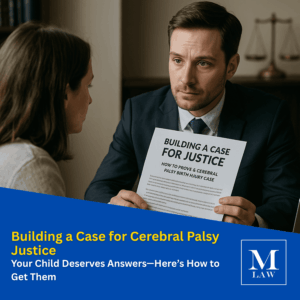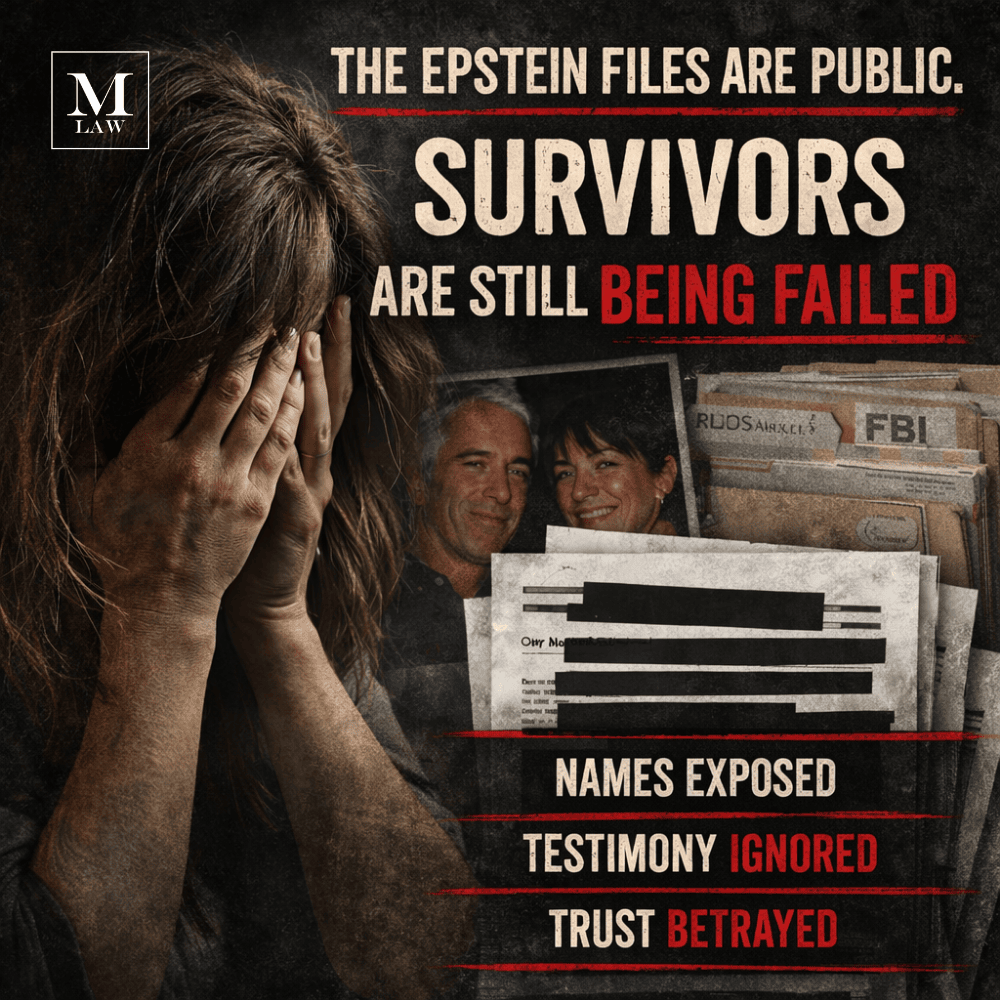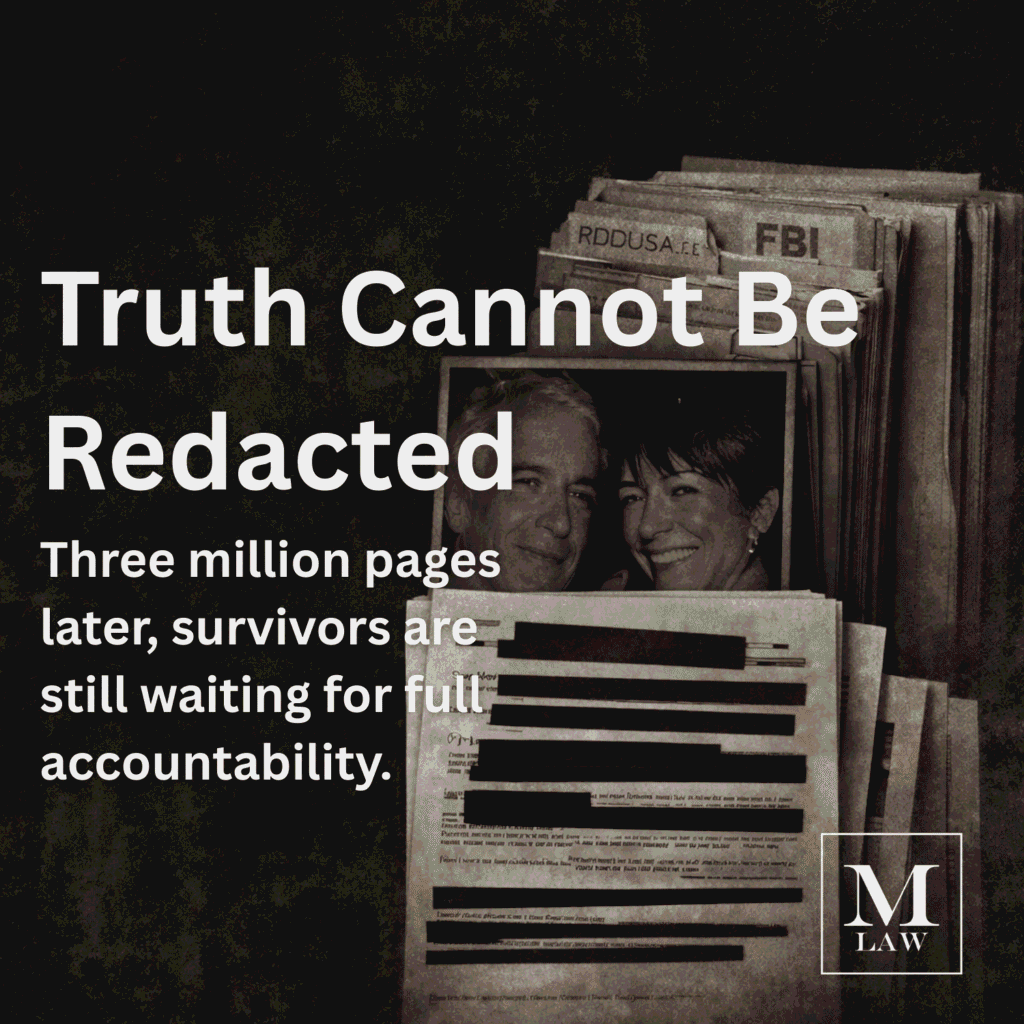On November 19, 2025, Merson Law founding attorney Jordan Merson appeared on CTV News to discuss the upcoming release of the Jeffrey Epstein DOJ files—a development that is drawing national attention and raising important questions about transparency, accountability, and survivors’ rights.
In the interview, Merson explains why he expects many of the names and details connected to influential individuals to be heavily redacted, despite Congress mandating the files’ release. He also highlights what survivors are hoping to learn, the impact this moment may have on future disclosures, and why some victims may feel safer coming forward now.
Below is the full interview transcript, provided for survivors, journalists, and the public seeking clarity on what this release may mean.
CTV News Anchor:
Jordan Merson is standing by. He is a lawyer with Merson Law. The firm represents several survivors of Jeffrey Epstein. He is in New York City.
CTV News Anchor:
Jordan, thanks for joining us. A lot of people are watching closely to see how much will be made public when these Epstein files are released. What’s your expectation?
Jordan Merson:
Our expectation is that a significant portion of the information related to Jeffrey Epstein — his contacts, his communications, the people he associated with — will remain hidden. What survivors want, what the public wants, is full transparency. But it’s likely the documents will be heavily redacted, especially where powerful individuals are involved.
CTV News Anchor:
So you’re expecting redactions when it comes to people with influence or power who might appear in these documents?
Jordan Merson:
Yes. Historically, when files like this are released, the names of powerful people — politicians, business leaders, individuals with influence — tend to be withheld under the justification of privacy or ongoing investigations. Survivors have repeatedly expressed that justice requires clarity. They want the truth, and they deserve the truth. But I think people should be prepared for the possibility that some names will not appear.
CTV News Anchor:
You’ve represented survivors of Epstein for many years. How are they reacting to this? Is there concern? Is there frustration?
Jordan Merson:
It’s a mix. There’s hope — real hope — that information that was hidden for decades will finally come out. But there’s also understandable frustration that the system hasn’t always treated them with respect. Many survivors worry that releasing the files with heavy redactions only protects the same people who benefited from Epstein’s silence in the past.
CTV News Anchor:
Do you think this release will encourage more survivors to come forward?
Jordan Merson:
Absolutely. Whenever new evidence surfaces or the government is forced to release documents, survivors begin to feel safer. They realize they’re not alone. They realize what happened to them was part of a larger pattern. Many who have never spoken before suddenly feel they can talk — even if it’s just to ask questions. This release, even if incomplete, will likely lead to more survivors coming forward.
CTV News Anchor:
Is there anything in particular your clients are hoping to see in these documents?
Jordan Merson:
They want answers. They want accountability. They want to see who enabled this, who turned a blind eye, who had information but failed to act. For many survivors, this isn’t just about Epstein — he’s gone. It’s about the network around him. It’s about the individuals and institutions that made his abuse possible.
CTV News Anchor:
What would full accountability look like at this point?
Jordan Merson:
Full accountability means revealing the entire scope of what happened — the names, the conversations, the travel logs, the financial records. It means uncovering the complete network that allowed Jeffrey Epstein to operate. And it means allowing survivors to pursue justice with full knowledge of the facts. Without that, accountability is incomplete.
CTV News Anchor:
How do you balance survivor privacy with public interest? Some argue that too much disclosure could retraumatize victims.
Jordan Merson:
Protecting survivors is always the number one priority. Their names should never be released without their consent. Their identities must always remain confidential unless they choose otherwise. But there’s a difference between protecting survivors and protecting powerful people who may have participated in, facilitated, or ignored illegal conduct. The public has a right to transparency about those individuals.
CTV News Anchor:
Jordan, thank you for your time.
Jordan Merson:
Thank you.
CTV News Anchor:
Jordan Merson is with Merson Law in New York. He represents dozens of survivors of Jeffrey Epstein.
Jordan Merson’s appearance on CTV News reflects the questions many survivors are asking as the Epstein files move closer to public release. While the scope of the redactions remains unclear, one thing is certain: survivors deserve transparency, honesty, and support as new information emerges.
If you or someone you know was harmed by Jeffrey Epstein or anyone connected to him, Merson Law offers confidential, trauma-informed legal guidance. You can speak privately with an experienced team that has represented Epstein survivors and understands the sensitivities of these cases.
Confidential Contact:
212-203-6692
intake@mersonlaw.com







